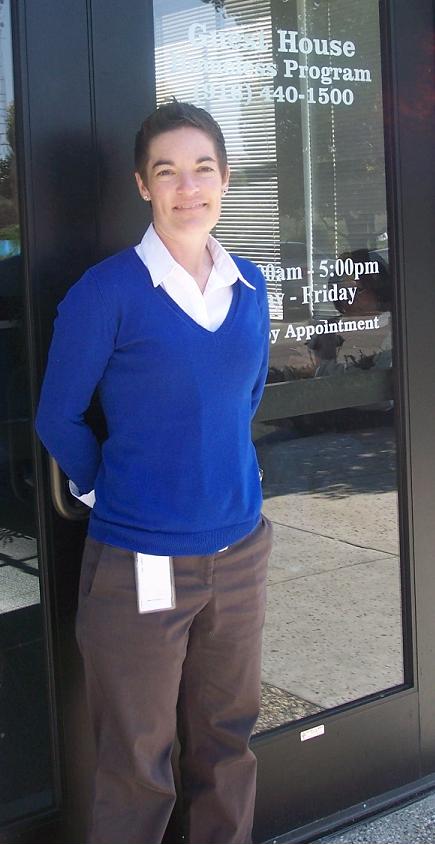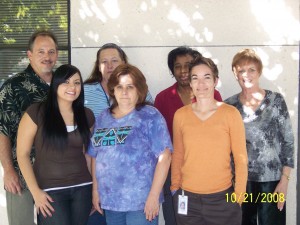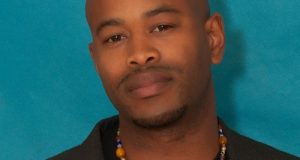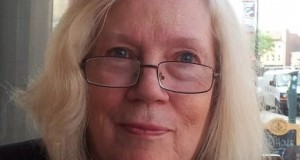
By: Philippe Matthews
The El Hogar Mission:
To provide services that contribute to the mental health and emotional well-being of individuals and families in the Sacramento community. El Hogar Community Services, Inc. has provided mental health supportive services to adults with chronic mental illness in the Sacramento, California region since 1977.
Jodi Nerell has worked in social services for 15yrs. She received her undergraduate at Cal Poly State University, San Luis Obispo (Family Psy.) and graduated San Francisco State University with a Masters in Social Work, MSW. Jodi is the Program Director of the Guest House Homeless Clinic for El Hogar Community Services in Sacramento, California. Her agency specializes in the provision of mental health services which is augmented by site specific support services such as housing, subsidies for homeless elderly individuals, etc.
How large is your staff at El Hogar and what are their unique skill sets that make them efficient at helping people at their lowest point?
We have three programs under the El Hogar umbrella (Guest House, Regional Support Team, and Sierra Elder Wellness). Collectively we have 65 employees who provide services for approximately 3300 clients annually. Our agency embraces the concepts of recovery (hope, personal empowerment, advocacy, etc.) and many of the staff have lived experiences which complement the extensive clinical training the agency provides.
Talk to me about the new face of homelessness. Who is losing their ability to provide a home for themselves?
It’s indiscriminate really. Most recently we are seeing more families, former foster youth, and professionals who were laid off-lost their health benefits and their homes. It’s sickening to witness. People are feeling disillusioned, in shock, and completely helpless.
You said there are eight total mental disorders that your agency is qualified to treat.
Our clinic provides services for adults who suffer from some of the most debilitating mental illnesses (schizophrenia, major depressive disorder, bipolar disorder, psychotic disorder, delusional disorder, schizoaffective disorder and specific personality disorders).
What is the official definition of homelessness versus the definition of the agency?
The Federal definition of homesslessness is: “an individual who lacks a fixed, regular, and adequate nighttime residence; and a supervised publicly or privately operated shelter designed to provide temporary living accommodations (including welfare hotels, congregate shelters, and transitional housing for the mentally ill); an institution that provides a temporary residence for individuals intended to be institutionalized; or a public or private place not designed for, or ordinarily used as, a regular sleeping accommodation for human beings”. We provide services under that definition, which differs slightly from the more restrictive Housing and Urban Development definition of homelessness which is limited to individuals living on the street or in shelters (excluding individuals who are forced to live in motels or “doubled-up”- temporarily living with someone else)
How does homelessness affect children?
Children whose families are experiencing homelessness are at risk of child welfare invovlement and family fragmentation attributable to the living conditions associated with homelessness. Cognitive development, language acquistion and motor skills can be seriously compromised due to the instability of homelessness. It is well documented that in school age children, those experiencing homelessnes are diagnosed with learning disblibilities, suffering from attachment disorders, and diagnosed with chronic and acute health conditions at a much higher rate than other children.
Are there entire families that are homeless?
Yes, unfortunately, and we are seeing an increase in that phenomena.
Why are you so passionate about the work you do?
I cannot imagine doing NOTHING and am intimately cognizant of the fact that it could just as easily be me on the other end of the table. In fact, at various periods in my life, it was me and this is my chance to give back what I received. The gift of Reciprocity can never be understated.
How does a typical day begin for you?
I check in with the team, we assess the waiting line at the front door and strategize ways to address the need with the staffing pattern. Triage process lasts most of the morning and I assist with consultation, provide provisional diagnosis, and meet individually with folks on my caseload. Meetings of course, lots of them, and then back to the office to disseminate information and prepare for inservices, etc. The 8-hr. workday does not apply here, nor could it given people’s needs don’t fit an 8-5 pattern.
Are there different profiles of homeless people?
Sure- and the demographic continues to change. We see a broad range of individuals- former foster youth, veterans, seniors, people with extensive educational/professional backgrounds (engineers, social workers, professors, pastors), those who are struggling with co-morbid conditions (addiction and mental health disorders, individuals with criminal justice background), and those who have been chronically homeless vs. recently homeless- it really runs the gamut. Homelessness doesn’t discriminate- it could be anyone’s reality.
I heard that there are some homeless people that prefer to be homeless and don’t want to integrate back into society. Is that true?
We do encounter people who are entrenched in the culture of homelessness and find it difficult to re-integrate. We respect where they are at and work to give them a positive experience with “the system”.
What about the people who try to beat the system and are just looking for a free handout? How do you address this issue?
Many of our clients report feeling “beat by the system”, vs. the other way around. We recognize that the “beating the system” mentality is actually a survival/coping mechanism that may have served them well in other arenas and at different points in their lives, but may be ineffective at getting their needs met as adults. We strive to have open honest lines of communication with those we serve, so we will open up that dialogue if appropriate. I am actually more focused on the other end of that coin, hoping to outreach and engage those that want/need the “free handout” so that we can collaborate on improving their quality of life.
I heard you were featured on Oprah. How did that happen?
We weren’t featured, the “tent city” locted two blocks behind us was profiled in addition to the Loaves & Fishes program which provides an extensive array of support services to those experiencing homelessness. Our services are a complement to theirs and we work interdependently to address the plethora of needs that you can imagine comes with homelessness and mental illness.
How big is your staff and have any of them ever been homeless?
Our staff here at the clinic is 10 with 4-5 interns that rotate throughout the academic year. Yes, several have experienced homelessness and approximately 80% of us are former consumers of the very services we now provide.
How can we change the perception of the homeless and realize they are not bums in the street strung out on drugs?
I think it first begins with the individual- taking a personal inventory of all of the support people in one’s life and an honest accounting of the “luxuries” many of us have…and then removing them. Imagining those layers removed, in combination with a catastrophic event (loss of a loved one, job loss, onset of auditory hallucinations, etc.) gives you a sense of what many of our clients experience. No one wakes up and “chooses” homelessness, addiction, or mental illness. Looking at others, truly looking at those you pass on the street, in front of your favorite coffee hang out- will inevitably force you to SEE the person not the circumstance that they currently find themselves in.
I do understand that a lot of people who become homeless do seek self-medicating drugs or alcohol to numb the pain of their situation.
That is the reality for some individuals- and what people choose as their survival/coping strategy varies from person to person. Our clinic seeks to tackle both issues in a parallel fashion (ie. Mental health treatment concomittantly with Alcohol/Drug treatment).
What kind of medical attention and psychological counseling does El Hogar offer?
We offer individual and group counseling, psychopharmacological therapies, and facilitate connection with a Primary Care doctor (some of our sites pay for the visit and provide transportation).
How do you handle those that are suicidal and feel complete hopelessness?
We begin by opening up the dialog, engaging the person with a non-threatening, non-judgmental approach and conducting a suicide assessment to determine lethality. Empathic listening and the genuine expression of concern a caring person goes a long way. If hospitalization is necessary, we explain the process and attempt to reach a voluntary decision to seek assistance. We will also evaluate current medications and potential substance interaction effects as well, to mitigate an overdose occurrence.
What is your ultimate goal with your program and mission at El Hogar?
Our mission statement is “To provide services that contribute to the mental health and emotional well-being of individuals and families in the Sacramento community”. To that end, the goal of our clinic is to essentially render ourselves non-essential. Our “graduate” profile is an individual who has obtained/sustained recovery from mental illness, is residing in a stable environment, is connected with a Primary Care physician and has secured financial solvency including health coverage (via employment, SSDI/SSI).
What can individuals do to help the homeless but don’t know where or how to start?
Connect with local providers and ascertain what services they are providing that most succinctly align with what you would like to do. There is still a lot to be done, but we wouldn’t be where we are if it weren’t for the vision, altruism, and commitment of a cadre of volunteers,donors, and professionals who are passionate about this type of service.
What is the website where people can get more information about El Hogar Community Services?
www.elhogarinc.org

 Philippe Matthews Show Guru Advice, Author Reviews, Tech Reviews, Entertainment News
Philippe Matthews Show Guru Advice, Author Reviews, Tech Reviews, Entertainment News









One comment
Pingback: In This Issue – April 2011 - Philippe Matthews Show Official Website